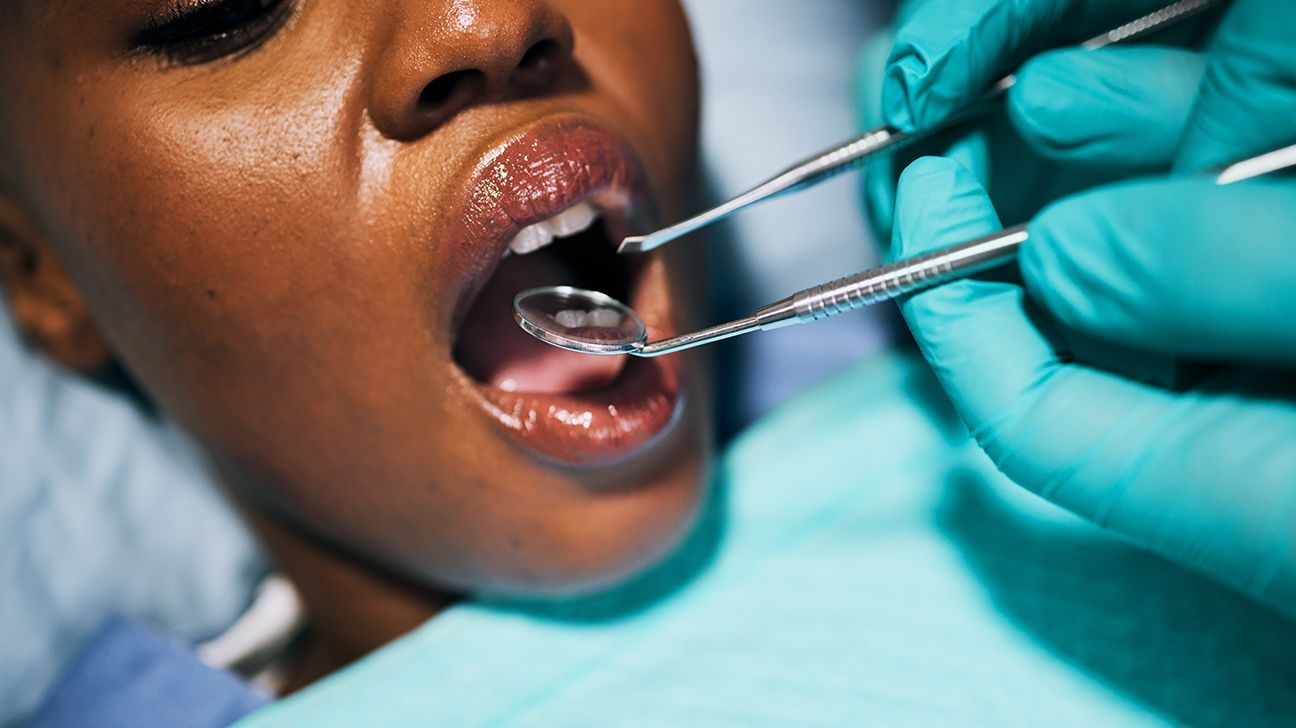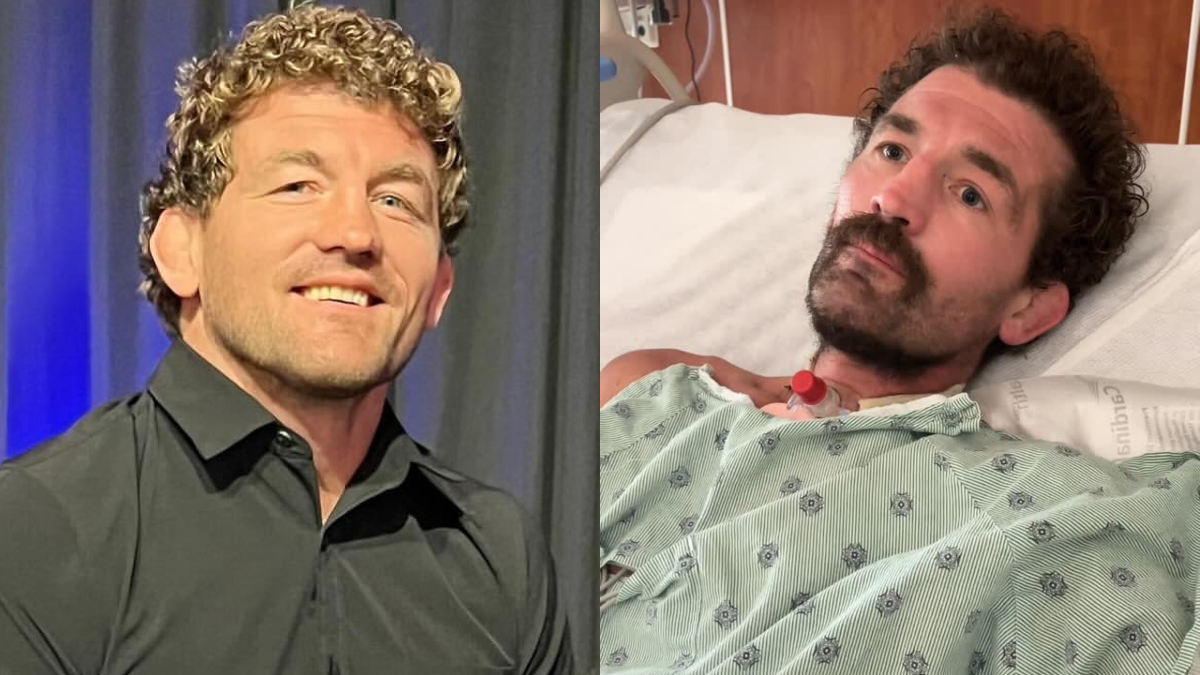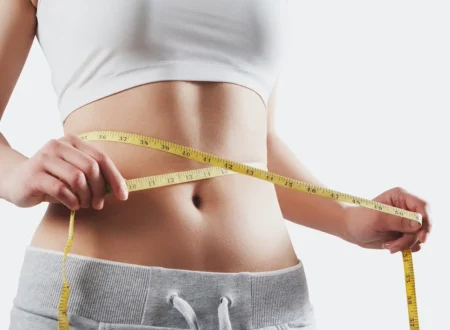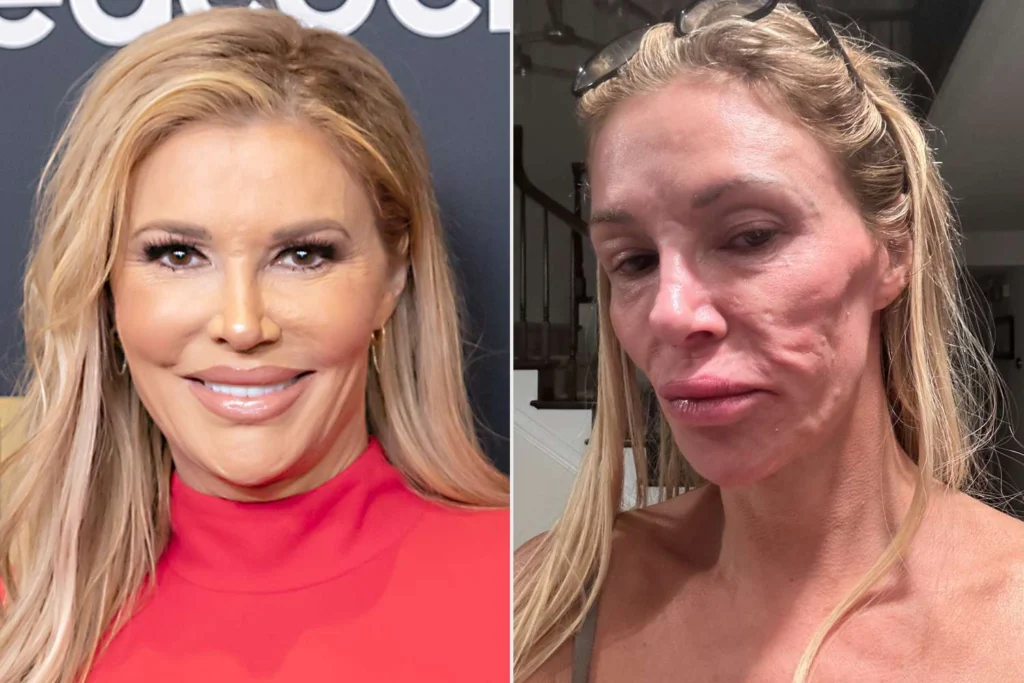Knowing the historical shame attached to fatness and Blackness, how could anyone look at me and think: “wow, fat, Black women have it easier?”
The world has very decided views on Black women.
Actually, what the world has is a set of inherent stereotypes and biases that people desperately cling to in order to maintain their (assumed) place in society’s hierarchy.
As a fat, Black woman, these stereotypes run the gamut from the regular insults of laziness to the more “positive” in nature. For example, the image of the “strong Black woman” is a pervasive harmful trope we see in everything from movies to reality TV.
It’s this idea that Black women are somehow impervious to ills that plague our non-Black counterparts. As a fat, Black woman, that includes diet culture — but nothing could be further from the truth.
Our experiences with diet culture are at best, isolating, and at worst, demoralizing. Under the myth of the “strong Black woman,” our “strength” supersedes our humanity, and we have to contend with a society that demands we play both victim and savior.
The uncomfortable truth is that fat, Black women were not spared from diet culture, and in the absence of empathy or compassion, we had to save ourselves.
Society perceives Black women as unaffected by body image concerns
In the early 2000s, there were several widely-circulated studies about the media’s impact on girls’ body image. Increased access to the internet opened up a whole new world for adolescents. Now, the TV, movies, and the web were working in tandem to fuel our insecurities about the way we looked.
A few of these studies sought to compare weight and body image perception cross-racially. One 2012 study of school-aged childrenTrusted Source deduced that Black girls were the most satisfied with our bodies when compared with our white and Asian counterparts.
Another study, covered the same year by the Washington Post and the Kaiser Foundation, proclaimed: Black women heavier and happier with their bodies than white women. Over the years, the “than white women” quietly dropped from the headline.
The conclusion was that thanks to the “acceptance” of fatness in the Black community — and our superhuman strength — we were shielded from the harsh realities of fatphobia.
I cannot stress enough how untrue and, frankly, dangerous that line of thinking is.
Growing up, my mother told me that I had “two strikes” against me: I was Black, and I was a woman. She failed to mention that being fat was my third strike, a fact I would be reminded of often — even by other Black people.
Growing up, my mother told me that I had “two strikes” against me: I was Black, and I was a woman. She was arming me for a lifelong, uphill battle to try and snatch some semblance of equality, understanding that I was already starting from behind.
She failed to mention that being fat was my third strike, a fact I would be reminded of often — even by other Black people.
The concept of “fat” looks different in my community, but over the years, I fear that has led non-Black people to confuse “different” with “accepted.”
While having full hips, a round bottom, and thick thighs is celebrated, sporting a tummy or fleshy arms is not. I can assure you that singer Jill Scott and actress Gabourey Sidibe are not treated equally (though they are both beautiful plus-sized women).
In fact, I’d wager the classic “video vixen” look — which requires an excess of fat around the hips, butt, breasts, and thighs but not anywhere else — is much harder to pull off than just losing weight.
Fatphobia is rooted in white supremacy and anti-Black racism
There’s also this hard truth: diet culture is firmly entrenched in white supremacy, so says the brilliant Dr. Sabrina Strings.
In her 2019 book, Fearing the Black Body: The Racial Origins of Fat Phobia, Strings un-blurs the lines between medical fact and history to understand how fatphobia and anti-Black racism are inextricably linked.
The book was pivotal to my personal understanding of diet culture as a Black woman, as it uncovered some deeply troubling truths about the mistreatment of my ancestors simply for being larger.
I’m reminded of the story of Sarah Bartmaan, who toured Europe as part of a “freak show” in the 19th century. According to physical descriptions, she was a fat Black woman stripped of her humanity, turned into a walking, talking oddity.
She died penniless and alone after being exploited.
Knowing the historical shame attached to fatness and Blackness, how could anyone look at me and think: wow, fat, Black women have it easier?
Black women have eating disorders, too — but we’re less likely to receive care
This blasé attitude towards fat, Black women even extends to eating disorders (EDs).
Historically, lack of representation, cultural incompetence, and other barriers like cost mean Black women are not as likely to seek and receive treatment for EDsTrusted Source. We aren’t a cause for concern for most ED advocacy groups or the broader medical community.
Even I was surprised when I was diagnosed with binge eating disorder.
The only images I’d ever associated with eating disorders are frail, young, white women purposefully under-eating. Surely eating too much was just a sign of my inability to control myself — a personal failure, rather than a symptom of a larger problem.
Traditional research was a dead end, since most of it only pertains to white women, while Black women are underrepresented in eating disorder clinical trialsTrusted Source. So I did what any millennial does: I turned to the internet for answers.
What I found was a robust digital anti-diet culture space — run almost exclusively by, and for, thin white women.
It took me around three months to find an “anti-diet” registered dietitian who actually had experience treating a Black woman with an eating disorder.
That is not to say I only accept treatment from people who look like me, but after a lifetime of medical fatphobia and cultural insensitivity, I would rather find a provider who is at least interested in my actual problems and won’t tell me to “lose weight” anytime I have an ailment.
Fat, Black women and girls deserve compassion
As I worked to decolonize my mindset around body acceptance and diet culture, it became even more urgent to be a voice for fat women of color — especially for Black women, who are often heralded for our self-confidence but left by the wayside when we need support.
I’m not blaming non-Black people. In fact, I think we’re in this fight together: diet culture is a global, institutional problem, and we can’t eradicate it in siloed subgroups.
But if you’re non-Black, I urge you — implore you — to stop envisioning fat, Black women as self-confident androids and remember that we’re people, too.
People who deserve to be poured into, just as much as we pour into others.
People who, like you, are victims of diet culture and are on the same journey toward acceptance and self-love.
Eating Disorder Treatment Often Excludes Transgender People
Trans people are much more likely to experience eating disorders, but current care systems overlook their unique needs and often do more harm. These advocates are working to change that.
Bee, a transgender, genderqueer person living in Portland, Oregon, once worked as a therapist serving trans, nonbinary, and intersex clients with eating disorders (EDs).
Now, they’re back in recovery from their own ED.
Bee, 36, was diagnosed with anorexia nervosa at 14 and entered recovery for the first time as a teen. They identified as recovered by their 20s, but during the COVID-19 pandemic, they said, they experienced “a full-blown relapse.”
Bee said their trans identity influences their ED, as it does for many people. Yet, they said that frontline ED treatment modalities often exclude, erase, or even harm trans folks in recovery.
Experts and advocates say that Bee is far from alone in feeling that way.
Trans people are more likely to experience eating disorders
Bee said their relationships with their body and food began to shift when puberty started.
“While I wasn’t necessarily cognizant of it at the time, looking back at it, there was definitely a lot of gender stuff at play,” they told Healthline. “I was just trying to take up as little space as possible.”
They said their gender dysphoria — extreme physical and emotional discomfort caused by perceiving your body as incongruent with your gender — continues to contribute to their ED.
Research suggests that trans people are much more likely to develop EDs and engage in disordered eating than cisgender people, and dysphoria likely plays a role (1Trusted Source, 2Trusted Source, 3, 4).
A study including more than 289,000 college students, 479 of whom were transgender, found that rates of ED diagnoses and disordered eating behaviors were much higher among trans students (3).
More than 15% of the trans people surveyed reported ED diagnoses, compared with 0.55% of the cisgender, heterosexual men and 1.85% of the cisgender, heterosexual women (3).
Unpacking the disparity
While there are no clear causes of EDs in any population, several risk factors appear to contribute.
Trans people can contend with many of the same risk factors as cis people, such as trauma and food insecurity, but they may be more likely to experience them as a result of living in a transphobic society, according to Hannah Coakley, MS, RD.
Coakley is a nonbinary, queer dietitian who works with clients in ED recovery through their private practice, Pando Wellness, in New York. Nearly half their clients identify across the transgender spectrum.
Coakley said trans folks face additional social, environmental, and physical experiences that influence the rates of EDs. For example, while not all trans people experience gender dysphoria, many do — and they’re subjected to increased scrutiny of their bodies.
“There’s the felt sense of dysphoria, which makes being in your body very challenging, and I find a lot of eating disorders come from how the body is trying to adapt to overwhelming states of being,” Coakley told Healthline.
“You develop other methods of not being in the body, or blunting some sensations in the body, or blunting even physical development.”
— Hannah Coakley, MS, RD (they/them)
While cis people can experience body dissatisfaction, gender dysphoria is different. It’s often an “intolerable physical experience,” Coakley said — one that can make your body feel foreign, detached, or terrifying because it doesn’t align with your gender.
Gender dysphoria and body dissatisfaction can co-occur. The dysphoria element, though, is a trauma specific to trans and nonbinary people.
Many trans people lack social support to transition or access to the gender-affirming medical care — including puberty blockers, hormone replacement therapy (HRT), and surgery — that can help ease dysphoria.
As a result, disordered eating may emerge as an attempt to control a body’s gendered characteristics, according to Coakley.
For example, trans men and transmasculine people sometimes report restricting food intake in order to shrink body parts that induce dysphoria, such as hips or chests, or to stop menstruation (5).
It’s not just gender dysphoria itself: Transphobic discrimination and bullying may also affect EDs, especially among youth (6, 7).
Where current eating disorder treatment may miss the mark
Although trans folks are disproportionately likely to experience EDs and disordered eating, they face prohibitive barriers to accessing treatment, ranging from financial obstacles to transphobia in care settings.
High costs and lack of insurance coverage
On average, the cost of inpatient ED treatment can range from $500–2,000 per day, and patients may need 3–6 months or more of care at that level. The cost of outpatient care may total more than $100,000 over time (8).
Bee is on Oregon’s state insurance, and they said there’s only one inpatient treatment facility in the state. However, Bee said the facility didn’t accept them as a patient.
When that treatment center didn’t pan out, Bee felt like they were out of options because their insurance wouldn’t cover alternatives.
“My parents actually ended up paying for my first month of residential treatment out of pocket, which is [ridiculous], and I was able to get private pay insurance that was helping me pay for it after that,” they said.
But Bee acknowledges that they come from an affluent family and have financial privilege that many people — especially many other trans folks — don’t.
Trans people are much more likely to live in poverty and much less likely to have adequate health insurance than cis people (9).
To help close these gaps, some advocates and organizations are working to provide free and reduced-cost options for LGBTQIA+ people seeking ED treatment.
Transphobia in treatment facilities
When trans people are able to access formal ED treatment, many report further issues that can impede healing.
It’s difficult to find trans-informed clinicians offering ED treatment. When clinicians don’t understand how gender dysphoria interacts with EDs, it can lead to a disconnect (7, 8, 10).
Bee, as a former clinician and current patient, said that clinicians in ED treatment facilities engage in both direct and indirect transphobia.
For example, they said that many facilities require trans patients to have had expensive, physically demanding surgeries before allowing them to use the appropriate single-gender spaces. Plus, not all treatment centers offer gender-neutral spaces or allow access to HRT.
Bee said clinicians at one residential treatment facility regularly misgendered them and other trans people, including trans staff members.
They had to ask staff repeatedly for access to the all-gender restroom, and they said they were often ignored or even punished for their self-advocacy. At the same time, a trans woman Bee met during treatment was denied access to the women’s restroom.
“My safety was not taken into consideration as a trans person.”
— Bee (they/them)
When treatment centers meant to help people heal replicate the oppressive systems that contribute to EDs in the first place, the effects can be serious.
In one study, many trans people said they wished they’d never gone to ED treatment — even though they acknowledged that it had been lifesaving — because of the transphobia they experienced (7).
Where body acceptance falls short
ED treatment often relies upon body acceptance or body positivity frameworks: helping patients learn to be OK with their bodies.
However, these frameworks may not be helpful for many trans people — and can even harm them, as these approaches can lead to trans patients being asked to accept characteristics of their bodies that induce dysphoria (7, 8, 11).
That’s why research suggests that ED treatment professionals consider gender-affirming medical care part of recovery for trans people who want or need it. Access to HRT seems to lower the risk of EDs for youth and adults (5, 8, 12Trusted Source).
How eating disorder treatment can become more trans-inclusive
Understanding trans patients’ unique needs should be a top priority in ED treatment, according to Coakley.
They emphasize gender affirmation in their practice, recognizing that trans clients’ discomfort with their bodies may require a different approach.
For example, when working with a transmasculine client whose ED stemmed in part from a desire to reduce the appearance of their chest, Coakley led conversations about top surgery as a potential element of their recovery.
When periods have caused dysphoria, Coakley has discussed HRT and healthcare options known to help slow menstruation, such as intrauterine devices.
“The question always being, ‘How can we affirm, validate, and address it without being in an eating disorder?’” Coakley said. “What are some other ways to achieve congruence?”
They work with most of their clients on sliding-scale or pro-bono bases, since costs often make treatment inaccessible.
“It’s just affirming the experiences and trying to create a space where someone feels like they can show themselves love.”
— Hannah Coakley, MS, RD (they/them)
Additionally, Bee said that clinicians should challenge the transphobia, fatphobia, ableism, racism, classism, and other systemic forms of oppression within healthcare systems to create more inclusive care settings.
How to find resources and get involved
Bee is a member of Fighting Eating Disorders in Underrepresented Populations (FEDUP), a trans and intersex collective supporting marginalized folks with EDs.
FEDUP facilitates trainings for clinicians, connects trans folks with treatment through a dietitian match program, leads virtual support groups, supplies grocery funds to trans and intersex Black, Indigenous, and People of Color, and more.
The group also maintains a scorecard rating residential treatment centers for accessibility and keeps a list of trans-identified and trans-allied ED treatment professionals.
Other resources include:
- Project HEAL: a nonprofit offering financial assistance for ED treatment, including direct funding and help with navigating insurance, especially for marginalized people
- Trans Lifeline: the only trans-led helpline for trans and nonbinary people — Trans Lifeline is divested from police (meaning nobody you talk to will contact law enforcement on your behalf) and also offers microgrants for HRT and name change costs
- National Eating Disorders Association: a large national organization that manages a helpline and has compiled a list of free and low cost support resources here
- National Center for Transgender Equality: a large nonprofit connecting trans people to resources, including a list of sources offering financial aid
- Resilient Fat Goddex: a blog by SJ, a “super fat, trans, non-binary, poor, neurodivergent, and queer” coach, consultant, and writer who also offers peer support groups and trainings for care professionals
- Let’s Queer Things Up: a blog by Sam Dylan Finch, a trans person writing about ED recovery, mental health, and other topics
- ThirdwheelED: a blog by OJ and CJ, two people writing about ED recovery “through a queer lens and (documenting) the dual perspectives of patient and nontraditional caregiver”
If you need HRT, this map compiled by Erin Reed, a trans activist, may help you find local informed consent clinics (meaning they won’t require therapists’ letters or other gatekeeping measures).
There are also remote care organizations operating across the United States, such as Folx Health and Plume.














